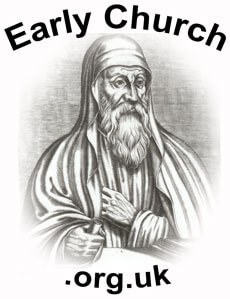Sextus Julius Africanus
(c.160 – c.240)
Theology on the Web helps over 2.5 million people every year to find high quality theological resources that will help to equip them to serve God and to know Him better (2 Timothy 2:15). Like other websites that provide free services, it is dependent on donations to enable it to grow and develop and only 0.004% of visitors currently do so. If you would like to support this site, please use one of the options to the right of this message.
Synopsis
What little we know of life of Sextus Julius Africanus can be gleaned from scattered references to his surviving writings and from Eusebius’ Church History.[1] He is remembered primarily for his history of the world in five books (Chronology) and two letters, one to Aristides and the other to Origen. The Chronology had a significant effect on later writers, many (e.g. Eusebius) based their own histories on the framework it provided.
Rob Bradshaw, Webmaster
Reference
[1] Eusebius, History, 6.31 (Nicene & Post Nicene Fathers, 2nd series, Vol. 1, 276-277).
Primary Sources
Secondary Sources
| William Adler, "Sextus Julius Africanus and the Roman Near East in the Third Century," The Journal of Theological Studies 55.2 (2004): 520–550. | |
| Edward Henry Blakeney [1869-1955], "Julius Africanus: A Letter to Origen," Theology 29 (1934): 361-368. | |
| B. Croke, "The Originality of Eusebius' Chronicle," American Journal of Philology 103 (1982): 195-200. | |
| F.L. Cross, The Early Christian Fathers. Studies in Theology 1. London: Gerald Duckworth & Co. Ltd., 1960. Hbk. pp.168-169. | |
| Julius Africanus (Adrian Fortescue) | |
| Frank Granger [1864-1936], "Julius Africanus and the
Library of the Pantheon," Journal of Theological Studies, n.s. 34
(1933): 157-161. |
|
| Rubin Habas, "The Jewish Origin of Julius Africanus," Journal of Jewish Studies 45.1 (1994): 86-91. | |
| Francis C.R. Thee, Julius Africanus and the Early Christian View of Magic. Tübingen: Mohr, 1984. ISBN: 316144552X. pp.538. |
Related Subjects
 |
|
 |
|
 |








